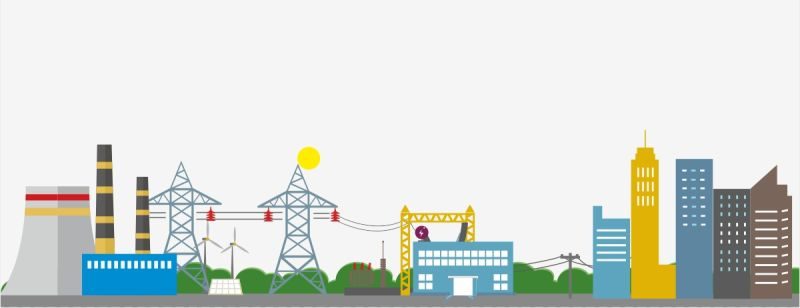
The country today is facing the unenviable dilemma of trying to provide cheap electricity to all industrial and commercial enterprises, while trying to ensure that the deep-rooted problems of the distribution sector are resolved. MSMEs are the engine room for employment and economic prosperity of India and will be the biggest contributor to the “Aatmanirbhar Bharat” vision.
They need maximum support to reduce their costs and increase their output. Good quality, reliable, and cost-effective power is quintessential to empower MSMEs. This can be achieved with the introduction of a new market participant that can be called a “Demand Aggregator”.
Demand Aggregator will:
*Provision is that the consolidated demand has to be > 1 MW The Electricity Amendment Bill 2020 (draft, but ultimately the act), which allows sub-distribution licensees to improve the efficacy of distribution licensees, may well provision “Demand Aggregator” as a service provider to MSMEs and distribution licensees. Also, CERC may design and develop an appropriate billing and settlement mechanism between licensees and demand aggregators.
Following can be the benefits to MSME and Licensee:
| MSME | License |
|---|---|
| Every MSME, whose electricity demand is less than 1MW shall get access to competitive electricity. | Single point contact – billing will be done by the Demand Aggregator who would also manage the downstream metering, billing, and collection services for MSMEs. |
| Improved viability: cost of electricity /unit production would be lower. | Impact of variability in demand forecast by MSME, which is now aggregated, shall reduce the burden on DISCOMs through their input cost |
| Demand Aggregator to stay competitive: MSME, like a big open access customer, shall have a choice to get power from either licensee or Demand Aggregator. | Licensees or sub-licensees will have a choice to recruit a qualified Demand Aggregator, with definite SLAs. This shall improve competency, efficiency, and a sense of collaboration. |
Provisioning of a Demand Aggregator shall be a win-win proposition for both MSMEs and distribution licensee. The licensee will save on the cost to service many small customers. It would need to interface with a single entity that is well-versed with the day-to-day operations of demand forecasting, metering, billing, and collection for an individual MSME. This will allow the licensee to focus more on its core business and its optimisation.